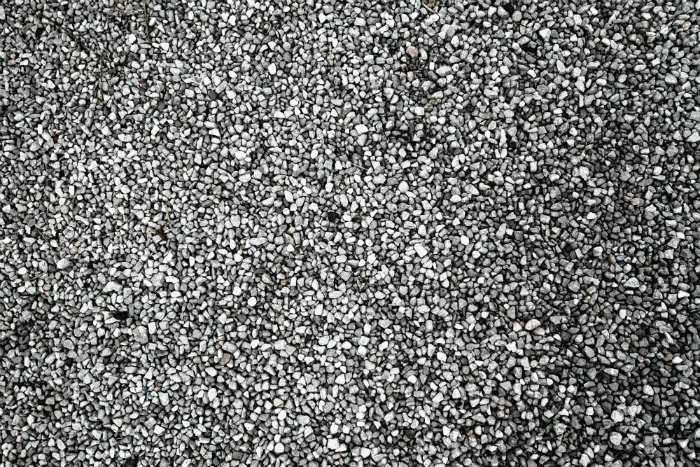Permeable pavement is a pavement type with a porous surface that is composed of concrete, open pore pavers or asphalt with an underlying stone reservoir. Also considered as green pavement, it allows water to run through it rather than accumulate on it or run off of it. The precipitation and water get stored in the reservoir from where it slowly infiltrates the soil below or is drained via a drain tile. The stone or gravel acts as a natural filter and clears the water of pollutants.

It is commonly used in parking lots, sidewalks, low-traffic areas and driveways. This eco-friendly pavement is suitable for different conditions that include hot climates, high-speed traffic areas and less-travelled areas. The 3 common types of permeable pavement include:
- Traditional Concrete/Asphalt: The standard mix minus the fine particles which are left out to make it more porous.
- Plastic Pavers: The plastic grids have a honeycomb shape that allows vegetation, such as grass, to grow through the holes.
- Concrete Pavers: There are spaces between the concrete blocks which aid better drainage and water permeability.

Benefits of Permeable Pavement
Some advantages of laying down permeable pavement include:
- Permeable pavement doesn’t produce a ‘heat island’ — an area on the pavement that is much warmer than the surroundings.
- It can be made using recycled materials, which puts less pressure on the environment to produce materials to build pavements and driveways. There are new techniques that allow manufacturers to use the byproducts, such as slag cement from iron manufacturers, to make concrete that can be used as a component of the green pavement. This helps in reducing landfill space as well.
- Since water and precipitation seep through the pavement, there won’t be any ice formation on it. Even in freezing temperatures, the pavement will remain warm and proves to be a safe surface for driving and walking.
- The pavement stays cool in the summers due to the circulation of precipitation and water. Additionally, its lighter color also helps in the same.
Drawbacks of Permeable Pavement
Unfortunately, there are some disadvantages that come along with permeable pavements. They include:
- It is more expensive to install as compared to traditional pavements.
- The maintenance requirements of permeable pavement are quite different. It is prone to clogging if the water in the reservoir isn’t drained out properly. The sand and fine particles that can block the space between the pavers must be removed using an industrial vacuum. It can even clog when you sand for ice during the winter. If you do not cater to clogging quickly, it will cause the water and pollutants to run off the surface, defeating the purpose of installing permeable pavement.
- They aren’t as strong as traditional or asphalt pavements. If you put consistent pressure (like heavy vehicle braking) on it, then the pores of the pavement will collapse. Due to this, permeable pavement isn’t ideal for building airport runways and highways.
Stormwater Management
There is another major benefit of installing permeable pavement — stormwater management. Permeable pavements help in managing stormwater efficiently by re-establishing a natural hydrologic balance and reducing the volume of runoff. It releases the precipitation slowly in the ground rather than letting it flow into storm drains, which is a huge wastage. Further, it can help in reducing the concentration of pollutants in the stormwater in three ways: physically — by trapping them in the pavement, chemically — the bacteria and other microbes break down and use the pollutants, and biologically — plants growing in between the pavers help in trapping and storing the pollutants. You can put this stormwater, which otherwise would have gone to waste, to good use at your home or company.

The pros of permeable pavements outweigh the cons, which is why you shouldn’t think twice of using permeable pavements.
Sam Wade is an innovative digital marketing manager designing end-to-end marketing campaigns for Jackson Asphalt. His expertise lies in developing unique marketing processes that ensure continued growth and development of the business. Sam has successfully led the marketing team of Jackson Asphalt with his knowledge and experience.

